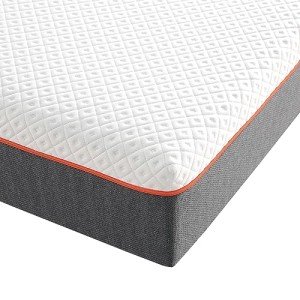Understanding Memory Foam Mattresses: Benefits, Types, and Buying Guide
Memory foam mattresses have transformed the way individuals believe about sleep. With their unique residential or commercial properties and benefits, they have become a popular option for homeowners aiming to enhance their sleeping experience. This short article digs into the intricacies of memory foam mattresses, including their benefits, types, and suggestions for choosing the right one.
What is Memory Foam?
Memory foam, initially developed by NASA in the 1960s, is a viscoelastic material that softens in action to heat and pressure. This quality permits the foam to mold to a person's body shape, offering personalized support and convenience while likewise dispersing body weight uniformly. As the pressure is launched, the foam gradually returns to its original shape, which adds to its unique "memory" impact.
Benefits of Memory Foam Mattresses
The appeal of memory foam mattresses can be credited to a range of benefits they use:
- Pressure Relief: One of the most considerable benefits of memory foam is its ability to contour to the body. It minimizes pressure points, especially in locations like the shoulders, hips, and knees, which can be beneficial for side sleepers.
- Spinal Alignment: When a memory foam mattress supports the natural curve of the spinal column, it promotes much better spine alignment. This might help in reducing neck and back pain for sleepers of all positions.
- Motion Isolation: Memory foam absorbs motion, ensuring that when one partner shifts or rises, the other remains undisturbed. This feature is especially beneficial for couples.
- Resilience: High-quality memory foam mattresses can last for a longer period compared to conventional spring mattresses. Their resilience is typically associated to their resistance to sagging and wear.
- Hypoallergenic Properties: Memory foam is less likely to harbor dust termites, mold, and other allergens, making it an excellent choice for allergy victims.
- Temperature Sensitivity: Some memory foam mattresses include cooling innovations developed to dissipate heat, preventing sleepers from overheating during the night.
Kinds Of Memory Foam Mattresses
Memory foam mattresses been available in numerous formulations, each with unique attributes. Below is a breakdown of the main types:
| Type of Memory Foam | Description |
|---|---|
| Conventional Memory Foam | The original type, known for its deep contouring and pressure relief. Usually denser, it can keep heat. |
| Gel-Infused Memory Foam | Instilled with gel beads, this type offers cooling residential or commercial properties to keep sleepers comfortable. |
| Aerated Memory Foam | Functions a design that improves air flow, helping to manage temperature and decrease heat retention. |
| Latex-Infused Memory Foam | Combines natural latex with memory foam for included bounce and support, while likewise providing hypoallergenic properties. |
| Plant-Based Memory Foam | Used plant-derived products, these mattresses typically offer eco-friendly options with comparable benefits to traditional memory foam. |
Factors to Consider When Buying a Memory Foam Mattress
When looking for the best memory foam mattress, different aspects must be considered:
- Firmness Level: Consider your sleeping position and individual preferences. Memory foam mattresses normally can be found in soft, medium, and firm options to accommodate various preferences.
- Material Quality: Look for high-density memory foam, as it tends to be more durable and supportive. Lower quality foams might break down much faster.
- Cooling Features: If you tend to sleep hot, a mattress with gel infusion or ventilation will be useful in maintaining a comfortable temperature.
- Warranty: A great warranty can provide peace of mind. Search for a mattress with a minimum of a 10-year warranty.
- Trial Period: Many makers offer a trial period that permits consumers to test the mattress in your home. This can be important for guaranteeing the mattress fits your requirements.
FAQs About Memory Foam Mattresses
1. For how long does a memory foam mattress last?
Typically, a quality memory foam mattress can last between 7 to 10 years. However, factors like usage, care, and the quality of products can influence longevity.
2. Are memory foam mattresses appropriate for all sleeping positions?
Yes, memory foam mattresses deal with various sleeping positions (side, back, stomach), however the very best option will depend on individual firmness preferences.
3. Do memory foam mattresses sleep hot?
Traditional memory foam can keep heat, however numerous more recent designs now include cooling technologies like gel-infused foam or breathable covers to alleviate this concern.
4. Can I utilize a routine bed frame with a memory foam mattress?
Yes, memory foam mattresses can be utilized on numerous bed frames, including slatted, platform, and adjustable bases. Nevertheless, ensure that Memory Foam Mattress For Hot Sleepers provides sufficient assistance.
5. How should I clean up a memory foam mattress?
Normally, spot cleansing with mild soap and water is advised. Avoid soaking it, as excess wetness can harm the foam.
Memory foam mattresses are an investment in much better sleep, offering numerous benefits that enhance the sleeping experience. With numerous types and considerations to keep in mind, people can make informed choices that accommodate their particular requirements. As the mattress industry continues to progress, these ingenious products promise continued advancements in convenience, toughness, and overall sleep health. Select carefully, and enjoy the restful sleep you are worthy of!

